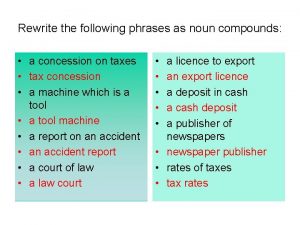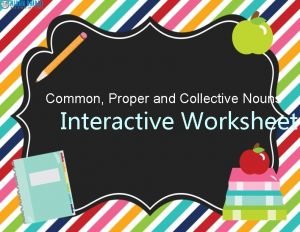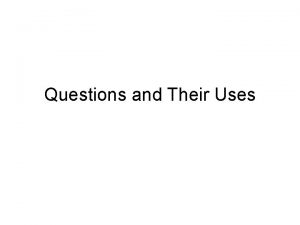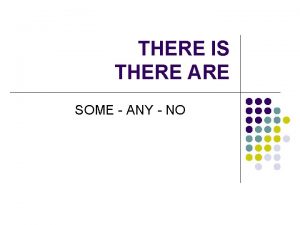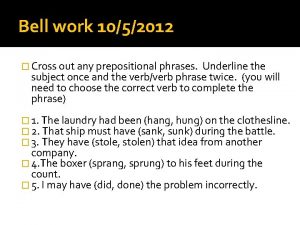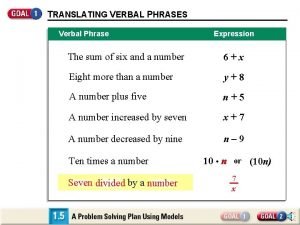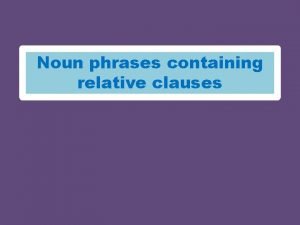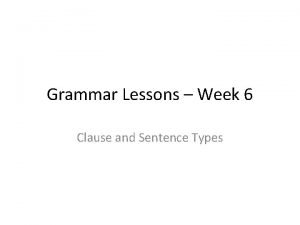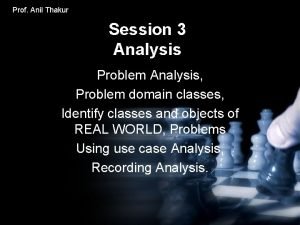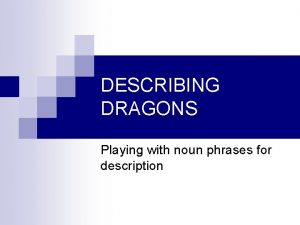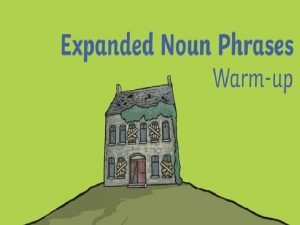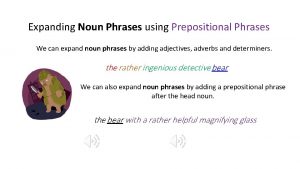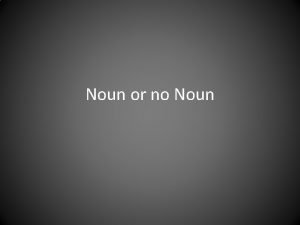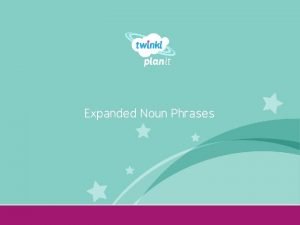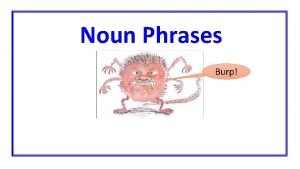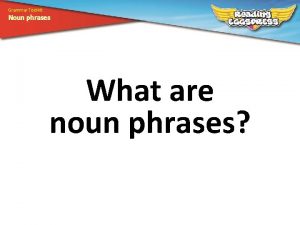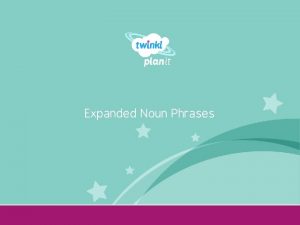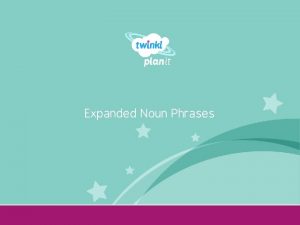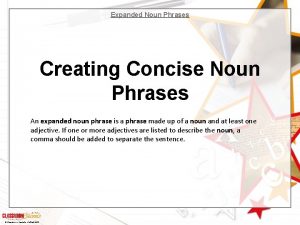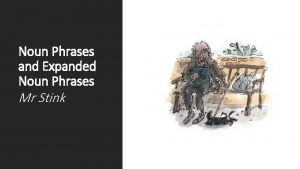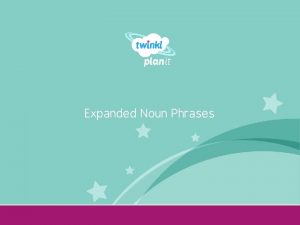Noun Phrases Eng II Noun phrases are any














- Slides: 14

Noun Phrases Eng II

Noun phrases are… • any head noun and the articles and adjectives that modify that noun. • Head nouns are the main nouns of phrases. (Sometimes it is easiest to find each of the head nouns to find each noun phrase. )

Noun phrases act as… subjects, objects of the preposition, direct objects, indirect objects, subject complements and object complements.

How to determine a complete noun phrase • An entire noun phrase can be replaced by the pronoun “it” (also “she, they”) • Noun phrases can exist within other noun phrases.

Examples • The girl who won the state championship finished as runner-up this year. • Can be replaced by she: • She finished as runner-up this year.

Examples • The girl who won the state championship finished as runner-up this year. • Can be replaced by it: • The girl who won it finished as runner-up this year.

Examples • The girl who won the state championship finished as runner-up this year. • Can be replaced by it: • The girl who won the state championship finished as it this year.

Why is this year not a noun phrase? • The girl who won the state championship finished as runner-up this year. • Consider this: • The girl who won the state championship finished as runner-up it.

Noun phrases as subjects • Noun phrases function as subjects when they answer the question: “Who are what did the verbing? ” • The man with brown hair went to the store. • Who went to the store? The man with brown hair.

Noun phrases as direct objects • A noun phrase functions as the direct object when it directly receives the action of the verb. • I ate the cookies with chocolate chips. • Who or what was being eaten? The cookies with chocolate chips.

Noun phrases as objects of the preposition • A noun phrase functions an object of the preposition when it follows a preposition and is part of a prepositional phrase. • She took her bonnet to the new hat shop.

Noun phrases as indirect objects • A noun phrase functions as an indirect object when it indirectly receives the action of the verb. • I bought Peter a new hat. • You gave the dog water.

Noun phrases as subject complements • A noun phrase functions as a subject complement when it describes the subject of a sentence. • Obama is President of the United States. • I am a teacher and runner.

Noun phrases as object complements • A noun phrase functions as an object complement when it describes an object (direct object, object of prep, etc. ). • The American people have elected Barack Obama president. • My coworkers often call our boss an idiot.
 Insidan region jh
Insidan region jh Funksiyaning oraliqdagi eng katta va eng kichik qiymatlari
Funksiyaning oraliqdagi eng katta va eng kichik qiymatlari Make compound nouns out of the following phrases
Make compound nouns out of the following phrases Proper noun common noun collective noun worksheet
Proper noun common noun collective noun worksheet Any to any connectivity
Any to any connectivity Informational probes adalah
Informational probes adalah Some any cheese
Some any cheese Cross out any prepositional phrases
Cross out any prepositional phrases How to write a verbal model
How to write a verbal model Noun phrases containing relative clauses
Noun phrases containing relative clauses Noun phrases and clauses
Noun phrases and clauses Noun phrases
Noun phrases Sentences to describe a dragon
Sentences to describe a dragon Noun phrase examples
Noun phrase examples Noun phrase
Noun phrase


